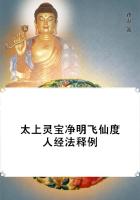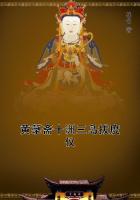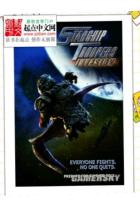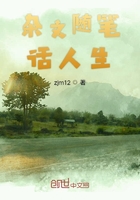IN THE HEAT OF THE DAY
It was a morning of the warmest week of mid-July, and Canaan lay inert and helpless beneath a broiling sun.
The few people who moved about the streets went languidly, keeping close to the wall on the shady side; the women in thin white fabrics; the men, often coatless, carrying palm-leaf fans, and replacing collars with handkerchiefs.In the Court-house yard the maple leaves, gray with blown dust and grown to great breadth, drooped heavily, depressing the long, motionless branches with their weight, so low that the four or five shabby idlers, upon the benches beneath, now and then flicked them sleepily with whittled sprigs.The doors and windows of the stores stood open, displaying limp wares of trade, but few tokens of life; the clerks hanging over dim counters as far as possible from the glare in front, gossiping fragmentarily, usually about the Cory murder, and, anon, upon a subject suggested by the sight of an occasional pedestrian passing perspiring by with scrooged eyelids and purpling skin.
From street and sidewalk, transparent hot waves swam up and danced themselves into nothing;while from the river bank, a half-mile away, came a sound hotter than even the locust's midsummer rasp: the drone of a planing-mill.A chance boy, lying prone in the grass of the Court-house yard, was annoyed by the relentless chant and lifted his head to mock it: "AWR-EER-AWR-EER! SHUT UP, CAN'T YOU?" The effort was exhausting: he relapsed and suffered with increasing malice but in silence.
Abruptly there was a violent outbreak on the "National House" corner, as when a quiet farm-house is startled by some one's inadvertently bringing down all the tin from a shelf in the pantry.The loafers on the benches turned hopefully, saw what it was, then closed their eyes, and slumped back into their former positions.The outbreak subsided as suddenly as it had arisen: Colonel Flitcroft pulled Mr.Arp down into his chair again, and it was all over.
Greater heat than that of these blazing days could not have kept one of the sages from attending the conclave now.For the battle was on in Canaan: and here, upon the National House corner, under the shadow of the west wall, it waxed even keener.Perhaps we may find full justification for calling what was happening a battle in so far as we restrict the figure to apply to this one spot; else where, in the Canaan of the Tocsin, the conflict was too one-sided.The Tocsin had indeed tried the case of Happy Fear in advance, had convicted and condemned, and every day grew more bitter.
Nor was the urgent vigor of its attack without effect.Sleepy as Main Street seemed in the heat, the town was incensed and roused to a tensity of feeling it had not known since the civil war, when, on occasion, it had set out to hang half a dozen "Knights of the Golden Circle." Joe had been hissed on the street many times since the inimical clerk had whistled at him.Probably demonstrations of that sort would have continued had he remained in Canaan; but for almost a month he had been absent and his office closed, its threshold gray with dust.There were people who believed that he had run away again, this time never to return; among those who held to this opinion being Mrs.Louden and her sister, Joe's step-aunt.Upon only one point was everybody agreed: that twelve men could not be found in the county who could be so far persuaded and befuddled by Louden that they would dare to allow Happy Fear to escape.The women of Canaan, incensed by the terrible circumstance of the case, as the Tocsin colored it--a man shot down in the act of begging his enemy's forgiveness--clamored as loudly as the men: there was only the difference that the latter vociferated for the hanging of Happy; their good ladies used the word "punishment."And yet, while the place rang with condemnation of the little man in the jail and his attorney, there were voices, here and there, uplifted on the other side.People existed, it astonishingly appeared, who LIKED Happy Fear.These were for the greater part obscure and even darkling in their lives, yet quite demonstrably human beings, able to smile, suffer, leap, run, and to entertain fancies;even to have, according to their degree, a certain rudimentary sense of right and wrong, in spite of which they strongly favored the prisoner's acquittal.
Precisely on that account, it was argued, an acquittal would outrage Canaan and lay it open to untold danger: such people needed a lesson.
The Tocsin interviewed the town's great ones, printing their opinions of the heinousness of the crime and the character of the defendant's lawyer.
..."The Hon.P.J.Parrott, who so ably represented this county in the Legislature some fourteen years ago, could scarcely restrain himself when approached by a reporter as to his sentiments anent the repulsive deed.`I should like to know how long Canaan is going to put up with this sort of business,' were his words.`I am a law-abiding citizen, and I have served faithfully, and with my full endeavor and ability, to enact the laws and statutes of my State, but there is a point in my patience, I would state, which lawbreakers and their lawyers may not safely pass.Of what use are our most solemn enactments, I may even ask of what use is the Legislature itself, chosen by the will of the people, if they are to ruthlessly be set aside by criminals and their shifty protectors?
The blame should be put upon the lawyers who by tricks enable such rascals to escape the rigors of the carefully enacted laws, the fruits of the Solon's labor, more than upon the criminals themselves.















